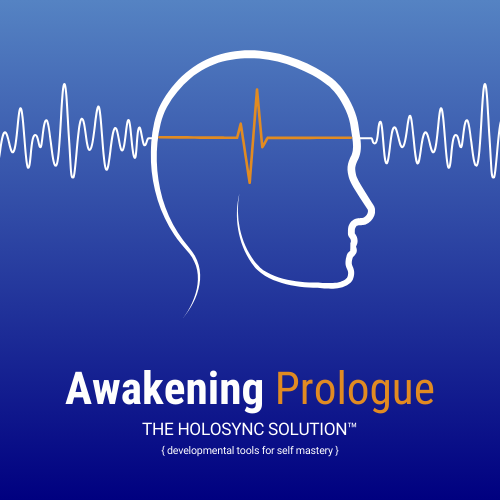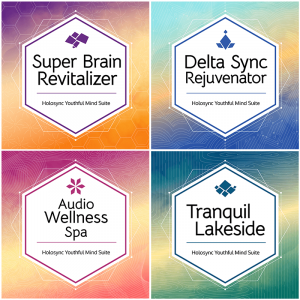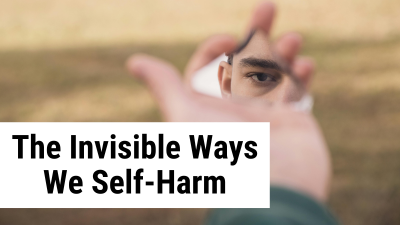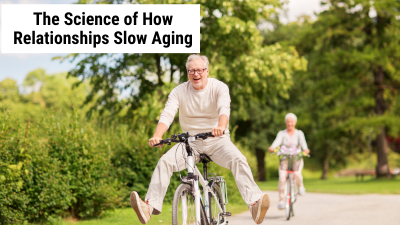“The universe is one interconnected thing/event, flowing along like water in a river.” - Bill Harris
Issue #482 – Monday, June 30, 2025
I love taking walks or riding my bike in the morning. It’s a great opportunity to slow down and appreciate the lovely city of Boca Raton where I live.
But did you know that during my morning exercise, I’m doing much more than just stretching my legs?
According to scientists, I’m also stretching my brain!
And that’s the topic of this week’s Mind Power from Accelerated Results Coach David Bardes: how something as simple as walking improves your brain health.
David breaks down how you can enjoy a ton of benefits during your walks like stress reduction, neuroplasticity and even neurochemical balancing.
I know you’re going to love this!
Cheers,

MaryEllen Tribby
Centerpointe CEO
P.S.
Holosync and hypnosis are a match made in heaven!
Scroll down to the Check it Out section below to learn how you can gain newfound control over your habits, make more money, boost your confidence, further healing and so much more!
Stretching Your Legs - Stretching Your Brain
The Benefits of Walking for Brain Health
By David Bardes
Walking is one of the most accessible and underrated forms of exercise, offering a host of physical and mental benefits. And among its most powerful (yet often overlooked) advantages is its positive impact on brain health.
Regular walking, particularly in natural environments like forest paths or mountain trails, has been proven time and again to reduce stress, enhance cognitive function, and promote more neuroplasticity - the ability for the brain to change and adapt.
But that’s not all.
In addition to the usual body benefits you might associate with walking like improved blood flow, endorphins, and muscle maintenance, walking also improves blood circulation to the brain, which helps you regulate your emotions and even improves sleep quality!
Who knew that such a simple exercise can be a crucial daily habit for mental wellness and cognitive longevity?
Forest Walking and Stress Reduction
One of the most profound ways walking benefits brain health is through stress reduction, particularly when the walk takes place in a natural setting.
Forest walking, or "forest bathing" as it's known in Japan (shinrin-yoku), is the practice of surrounding oneself with the beauty and abundance of nature.
While traditionally, you want to get as far away from the hustle and bustle of the city as you can so that you can enjoy the peaceful sounds of wind blowing through the trees or the rushing of a river’s flow, even walking through your local park can give you the benefits of forest walking.
This mindful experience has been specifically associated with lowering levels of cortisol, the body’s primary stress hormone. The combination of mild physical activity, fresh air, natural sounds, and greenery is a great natural way to activate the parasympathetic nervous system, which helps the body relax and recover from excess stress.
Neuroscientists say that stress is the primary reason we experience mental fatigue, anxiety, and depression. So being able to reduce stress levels just by taking a forest walk is a lifeline for those who want clearer thinking, emotional balance, and long-term brain resilience.
BDNF Production and Neuroplasticity
Have you ever heard of brain-derived neurotrophic factor (BDNF) before?
It’s a protein that plays a crucial role in the growth, development, and maintenance of neurons - the cells that allow information to pass throughout the brain.
BDNF is especially important for neuroplasticity - the brain's ability to adapt and form new neural connections. The more neuroplasticity you have, the more resilient your brain is when life becomes chaotic.
Studies have shown that aerobic activities like walking can significantly increase BDNF levels, meaning more neuroplasticity. This helps improve learning, memory, and even protect the brain from degenerative diseases like Alzheimer’s.
Regular walking has also been linked to improved performance on memory and attention tests, which may be partially explained by elevated BDNF levels in response to regular exercise - even light exercise like walking.
Enhanced Blood Flow and Oxygenation
Walking also improves cerebral blood flow, ensuring that the brain receives the oxygen and nutrients it needs to function at its best.
The better your blood circulates to and from the brain, the more effectively your brain will be able to get the glucose and other essential molecules needed to metabolize and function properly.
Over time, increased blood flow contributes to the growth of new blood vessels in the brain and may also improve the health of the hippocampus, a brain region essential for memory and learning.
But circulation doesn’t just help with nutrients flowing to the brain. It also helps flush out toxins that can build up and cause problems. The better your circulation, the better your brain can clean itself, reducing the risk of stroke and other cerebrovascular issues.
Mood Regulation and Better Sleep
Here’s another way that walking can give a boost to your brain health:
It helps your neurochemicals stay balanced and healthy.
This means that it improves your mood and your sleep quality, both of which are essential for brain health.
Walking stimulates the release of endorphins and serotonin, chemicals associated with happiness and relaxation that cancel out the stress hormone, cortisol.
This reduces symptoms of depression and anxiety, while improving mental clarity and decision-making.
Walking also helps regulate your circadian rhythm, promoting deeper, more restful sleep. It’s during sleep where the brain performs many critical maintenance tasks, such as memory consolidation and the removal of metabolic waste. So the better your sleep, the more likely you’ll wake up refreshed and ready for the day.
A Walk to Remember
Can you believe all of this can happen just by making sure you get some regular walking into your routine?
Walking might seem simple, but it has a profound effect on your brain health.
From reducing stress through nature exposure, to boosting BDNF production and improving cerebral blood flow, its benefits span both the biological and psychological domains.
Not to mention advantages like mood regulation and improved sleep which further contribute to cognitive longevity and emotional well-being.
So the next time life starts to get tough, try taking a walk through your local park.
Even better: make walking a regular part of daily life - especially in green spaces - and you’ll adopt an inexpensive yet powerful and sustainable strategy for maintaining a healthy and vibrant brain throughout life.
This is one habit your body - and your brain - will thank you for.
Check It Out!
Holosync Hypnosis Advantage

Hypnotherapy techniques and Holosync neuro-audio technology combine to form the most powerful hypnosis program ever created!
Get targeted hypnotherapy that bypasses your conscious filters so you can get your brain working for you instead of against you when it comes to changing habits, making money, forming relationships, healing from trauma, or anything life throws your way.
It’s an investment for success that you and your family will benefit from for the rest of your lives.
Wise Words
“Walking might seem simple, but it has a profound effect on your brain health.” - David Bardes
This Really Happened
I do love the MyHolosync app!! Frequencies make a difference!!! App is easy to use!!!
~Louise T.
MyHolosync App User
We Want to Hear From You!
Where is your favorite place to take a walk?
Post your story on our Facebook Page.
Not on Facebook? Tell me about the impact that meditation with Holosync has had on your daily life. Stress? Sleep? Weight Loss? Focus? Spiritual Connection? Other?
Email your story here:
Find Us On Facebook
Post your story on our Facebook Page.
Not On Facebook?
Email Us!
Pay It Forward:
Your story may profoundly affect the life of a person you never meet,
but who will be forever grateful.






















